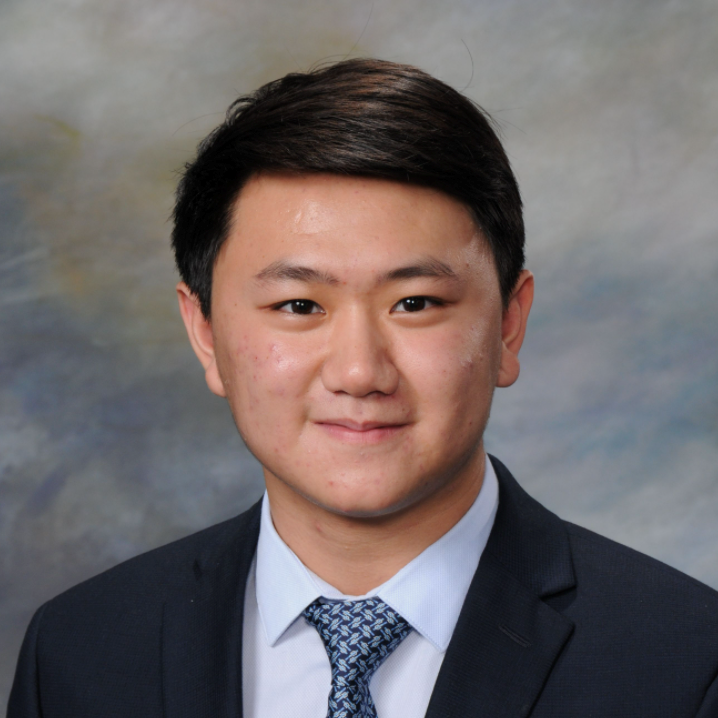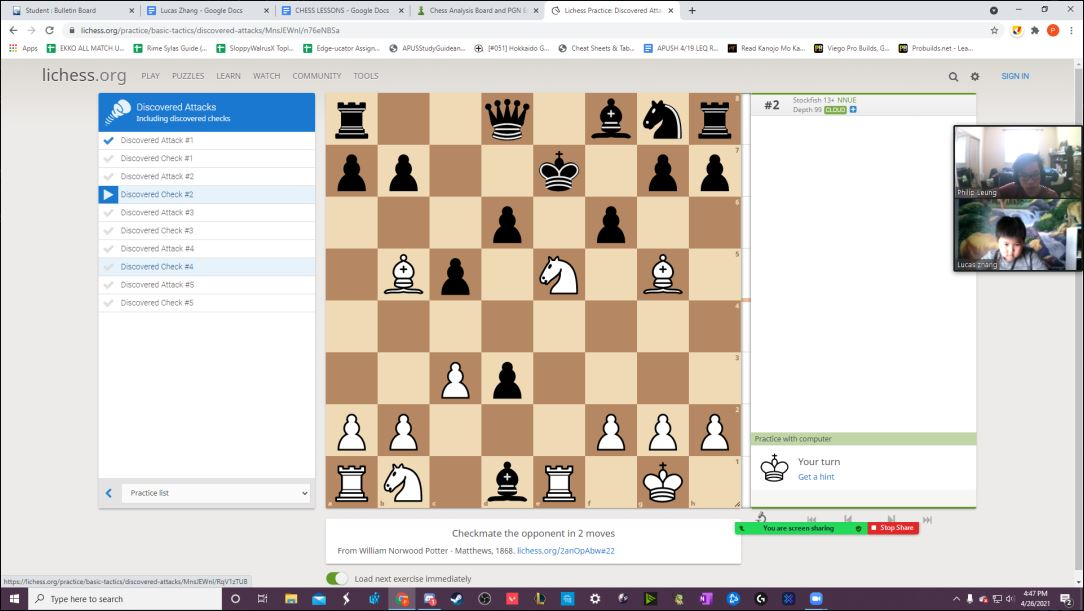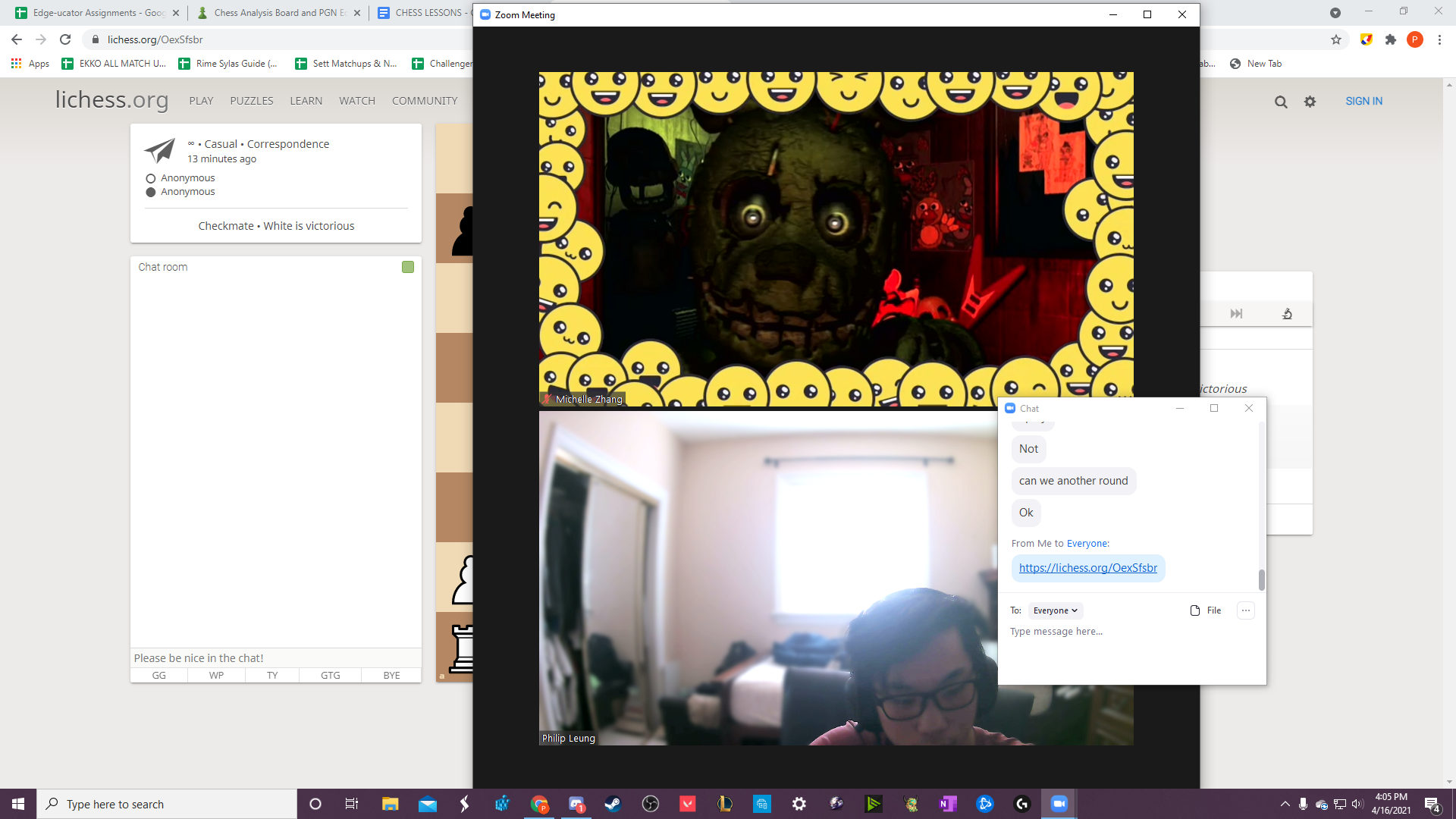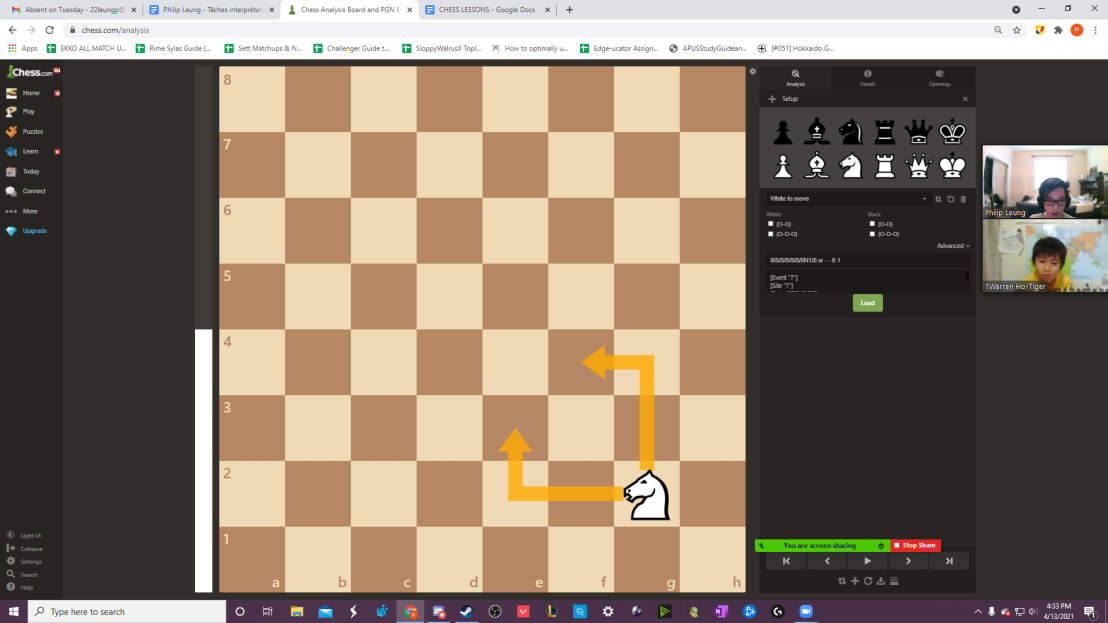- Published on
Tutor Feature: Philip Leung
- Authors

- Name
- Randy Cai
As Project Edge continues to grow, we would like to acknowledge one of the tutors directly progressing the democratization of education: Philip Leung.
Currently a senior at Flintridge Preparatory School, Philip joined Project Edge in his junior year after becoming “burnt out from playing chess competitively last year;” he hoped to use his skills for something productive and beneficial to others in the meantime. In his own words: “I wanted to ignite the same type of passion for chess that I had when I had just started playing. The pandemic was also a huge contributor: more accessibility, convenience, and I'm sure potential students were just as bored as I was.”
To date, Philip has tutored over 100 sessions with Project Edge to prospective young chess players. His dedication is clear. Within Edge, he holds the record for most sessions taught by a considerable margin--but his commitment to education extends beyond mere quantity.
“Tutoring is really rewarding because you can actually see progress. Chess tutoring is far more different from academic tutoring. While in school subjects, students may just be coming for help on a specific topic, in chess, everything taught stacks up and up. Maybe the next time you see a student for chemistry help, they're on the next unit. The things I teach are present constantly, starting from the foundation and basics. It's just really awesome when they've finally gotten good at the stuff they're learning. My students get pretty excited when they also realize they've improved,” he said, explaining his dedication for tutoring. To Philip, student enthusiasm is critical, and he enjoys knowing that students enjoy their time with him. In fact, his favorite part of tutoring is “emails from parents telling [him] how much their kids enjoyed the lessons.”
Not only is Philip a proficient teacher, but he has shown quality as a mentor that his students look up to and genuinely connect with. “Of course, since my initial goal was for kids to enjoy chess, their enthusiasm is crucial. It's also fun just to talk about what's going on in their lives in the beginning of lessons. Some students are much younger so it's nice to talk about something other than chess,” he elaborates. Topics that have been discussed with Philip during tutoring sessions range from chess strategies to student science camps to a mutual fascination with spaghetti.
With regard to a true measure of an effective teacher--real engagement with students--Philip Leung continues to succeed.

Image: Philip teaches enthusiastic chess student Lucas Zhang about all things strategy.
Update: Philip's Side
The first time I tried officially tutoring, it was when a parent reached out to me. “Hey, my daughter is interested in chess, and I was wondering if you could teach her some stuff. She’s pretty new but it’s not often I see her so interested about something!” I agreed wholeheartedly, but now looking back on the ensuing lesson, only regret remains. While teaching with the best intentions, the lesson was too fast paced, too advanced, and ultimately unsuited for an elementary schooler that just picked up chess. The “simple ideas” I spit out left and right were no doubt too complicated in hindsight. I butchered it. I was trying to fit in my years of knowledge and concepts into a short hour. It didn’t take long to realize I was wholly unprepared to tutor as adequately as I played.
The most difficult part of my tutoring experience was adapting myself to the students’ knowledge and age-- a skill that proficient tutors and teachers already possess. I had started playing chess around the same age as the majority of my students- very early to say- and I had long forgotten how my teacher had taught me back then. Thus, I created my own, more accelerated curriculum, based on what I thought were necessary skills for a novice, expected as my role as Curriculum Director. After an initial lesson to gauge the skill level, everything was completely personalized. Many students also learned in different ways, so I adopted many different teaching styles to maintain interest.
I had the pleasure of teaching both young and older students of varying prowesses, and thus got comfortable working with all ages. It felt really gratifying assessing the students and having their eyes light up when they found the answer, or even when I ended up revealing the complicated solution. Connecting with the students had to be the best part. Since I’m so much older than them, all the stuff they’ve done in their lives outside of chess, I can usually relate to, and I think that’s what people really want. Talking with them regardless of subject was definitely a highlight of my days. Thank you emails from students and parents, as well, made me feel truly appreciated and relieved that my help pays off.
The opportunity to tutor chess has not only allowed me to share my passion and knowledge with others, but I’ve also bettered myself as a teacher and learner, a result all my students contributed to.

Image: Assessing a new student, Michelle Zhang, with a few matches.

Image: Teaching student Warren Ho through match analysis.
Follow both our blog and main website to get more updates and news regarding just about anything at Project Edge!